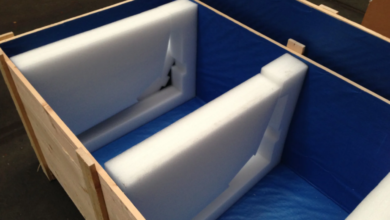Maximize Your Savings Potential with Lamina: A Smart Approach to Spending

Saving money isn’t just about spending less—it’s about making better choices with your money. The way you manage your spending affects your ability to pay off debt, save for important things, and stay financially stable. Small changes, like cutting unnecessary costs and planning ahead, can make a big difference in the long run.
Unexpected costs can strain your budget, and sometimes you need extra cash. Companies like Lamina connect people with short-term loan options. But the best way to avoid money problems is to spend wisely and stay in control.
Know Where Your Money Goes
The first step to saving more is knowing where your money goes. Many people spend on things they don’t need without noticing. Keeping track of expenses shows where you can cut back and make smarter choices.
Look at your bank statements and sort your expenses into two categories:
- Essentials – Rent, groceries, utilities, and other necessary costs.
- Non-essentials – Dining out, subscriptions, impulse purchases, and entertainment.
Once you see the patterns, you can find ways to cut back without feeling deprived.
Set Clear Money Goals
Saving is easier when you have a purpose. Without goals, it’s easy to spend money on things that don’t really matter. Think about what you want to achieve, whether it’s building an emergency fund, paying off debt, or buying something important—like planning a thoughtful surprise with flower delivery in Kitchener for someone special.
Break your goals into three types:
- Short-term (0–6 months) – Paying off small debts or saving for a vacation.
- Mid-term (6 months–5 years) – Building savings, buying a car, or making a home down payment.
- Long-term (5+ years) – Retirement, homeownership, or investing.
A clear plan keeps you focused and helps you avoid wasting money on things that don’t align with your priorities.
See also: Boosting Online Success: How to Improve Your Online Business Using SEO
Create a Budget That Works
A budget is not about restriction—it’s about control. One simple method is the 50/30/20 rule:
- 50% for Needs – Housing, food, transportation, and bills
- 30% for Wants – Entertainment, shopping, and leisure
- 20% for Savings and Debt Repayment – Emergency fund, retirement, and loans
If you’re spending too much on non-essentials, adjust your budget to put more toward savings. Even small changes, like eating at home more often or canceling unused subscriptions, can free up extra money.
Cut Unnecessary Expenses
Reducing spending doesn’t mean giving up everything you enjoy. It just means being smarter about where your money goes. Try these simple strategies:
- Cancel What You Don’t Use – Streaming services, gym memberships, and apps you no longer need.
- Eat Out Less – Cooking at home saves money and is often healthier.
- Look for Better Deals – Compare prices, use coupons, and buy in bulk when possible.
- Use Public Transit or Carpool – Gas and maintenance costs add up fast.
Even small savings can add up over time, helping you put more money toward what really matters.
Be Smart with Credit
Credit is useful, but it can lead to trouble if not managed well. To avoid financial stress:
- Pay Bills on Time – Late fees and interest can add up quickly.
- Keep Credit Card Balances Low – Using too much credit can hurt your financial stability.
- Use Credit Only When Needed – Avoid using it for everyday expenses unless you can pay it off in full.
If you ever need short-term financial help, Lamina.ca can connect you with options to handle urgent expenses. But building good money habits ensures you stay in control without relying too much on credit.
Use Discounts and Rewards Wisely
You don’t always have to spend less—you just need to spend smarter. Take advantage of:
- Cashback and Rewards Programs – Many credit cards and apps offer points or cashback on purchases.
- Coupons and Promo Codes – A quick online search before buying can help you find discounts.
- Buying Secondhand – Gently used items can be just as good as new but cost far less.
These small strategies help you get more value from your purchases while keeping your budget in check.
Build an Emergency Fund
Unexpected costs, like car repairs or medical bills, can throw your finances off balance. That’s why having an emergency fund is crucial. Ideally, aim to save three to six months’ worth of expenses in a separate account.
If that feels overwhelming, start small. Even $20–$50 a week can build up over time. The important thing is consistency—regular savings, no matter how small, will protect you from financial setbacks.
Stick to Good Money Habits
Financial success isn’t about making one-time changes—it’s about consistency. Keep reviewing your budget, track your progress, and adjust as needed. Whether you’re cutting unnecessary subscriptions or budgeting for services like junk removal in Etobicoke, small tweaks can add up. Here’s how to stay on track:
- Set up reminders for bills and savings contributions.
- Check your spending monthly to spot areas for improvement.
- Celebrate milestones, like paying off a debt or reaching a savings goal.
With smart choices and discipline, you can grow your savings and reach your financial goals while still enjoying life.




